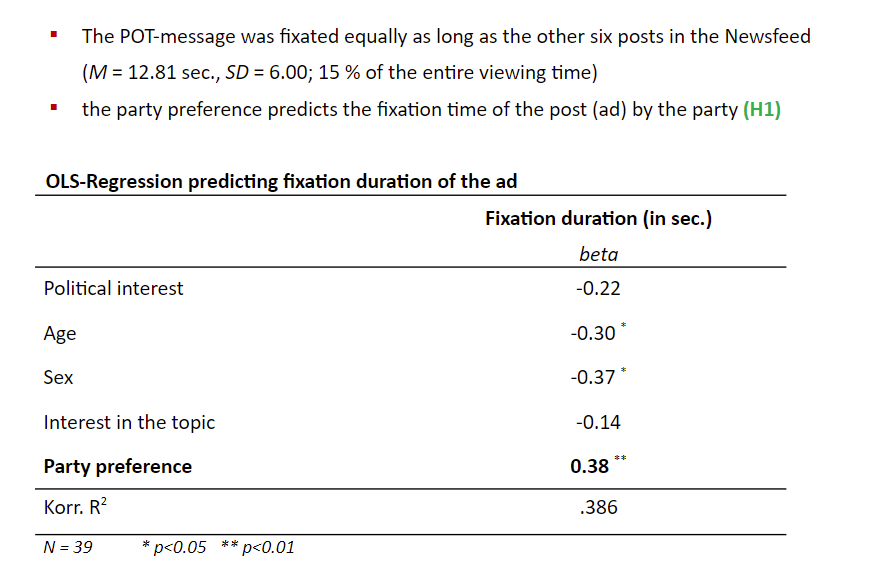
Want to know more about the effects of #Facebook political online #targeting (POT)? At 15:45 we show results of 2 studies that investigate the impact of party preference & the mediating role of message & sender perception in "S4-P2 PolitischeKampagnen&Akteure" #dach21 #btw21 

First, we examine the effect of party preference on attention/reception of POT with an eye tracking experiment. hypothesise that greater party preference results in more attention he/she will spend to a POT message 

Second, want to know H2) how party preference affect the message evaluation & H3) the willingness to redistribute the POT message using an online experiment. 

Further, we want to address potential factors (#Privacy concerns & perceived #manipluation) that come into play when addressing people that are not affiliated with the sending party and that might reduce the acceptance and the willingness to redistribute POT-messages. 

H1✔️Subjects watched POT messages for the same amount of time, as they watched the other posts. However, party affiliation has a significant influence on the viewing duration of the POT message. If a respondent received a POT message of a preferred party, the viewtime was longer. 

Participants with higher party preference…
H2✔️evaluated the ad more positive (i.e., persuasive)
H3✔️were more willing to redistribute/interact with content
--> Effects of party preference are mediated through perceived manipulation & perceived intrusiveness
H2✔️evaluated the ad more positive (i.e., persuasive)
H3✔️were more willing to redistribute/interact with content
--> Effects of party preference are mediated through perceived manipulation & perceived intrusiveness

Upshot is:it is fruitful for campaigns to use Facebook POT to address potential supporters.This might mobilize them to spread the messages & increase its reach. POT has no advantage if targeted at other party supporters. In the worst case, there is even the danger of reactance.👇 

@threadreaderapp please o mighty @threadreaderapp unroll 🧙
• • •
Missing some Tweet in this thread? You can try to
force a refresh


